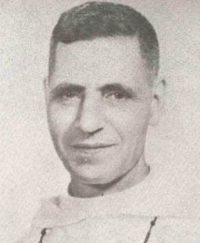A sleepless night. The three-engined planes droned in my dreams. Every engine that sounded in the streets reminded me of them, and the crackling of cars seemed like the whistling of bombs. Memories of the day before were too vivid for sleep. At one time, the impression seemed so real that I jumped out of bed shouting, “They are here!” But noticing that my companions were not being troubled, I went back to bed. I was contemplating on the words of General Grant, “War is hell.”
My subordinates would not allow me to go to Letran because of the painful sight that its condition presented to me. I therefore stayed at San Sebastian with the Recollect Fathers. The Fathers were there the whole day, continuously loading and unloading boxes and bundles in two wagons lent to us by Señor Madrigal. With the help of some students and cadets, the Fathers carted away what the fire spared.
A correspondent of the United Press came to secure the account of an eyewitness to the bombing, so as to wire it to the United States. Tokyo had denied the attack on any convent, school, or church, and the UPI correspondent wanted to believe this with the testimony of an eyewitness. He told us that South America had made inquiries and that the Archbishop of Buenos Aires and Rio de Janeiro, among others, were interested in knowing the truth about the bombings. However, we refused to give him a written statement, fearing that it might later on incriminate us.
Dr. Maurer visited me this afternoon. He was set free yesterday with the detained Germans and Italians. Meanwhile, the Japanese prisoners were brought to Manila and quartered under the very benign custody of their school at P. Campa. The German professor recounted how badly they were treated especially during the days of their confinement. It was only when they were turned over to the Filipino soldiers that they were treated with utmost consideration albeit within the rigors of imprisonment.
